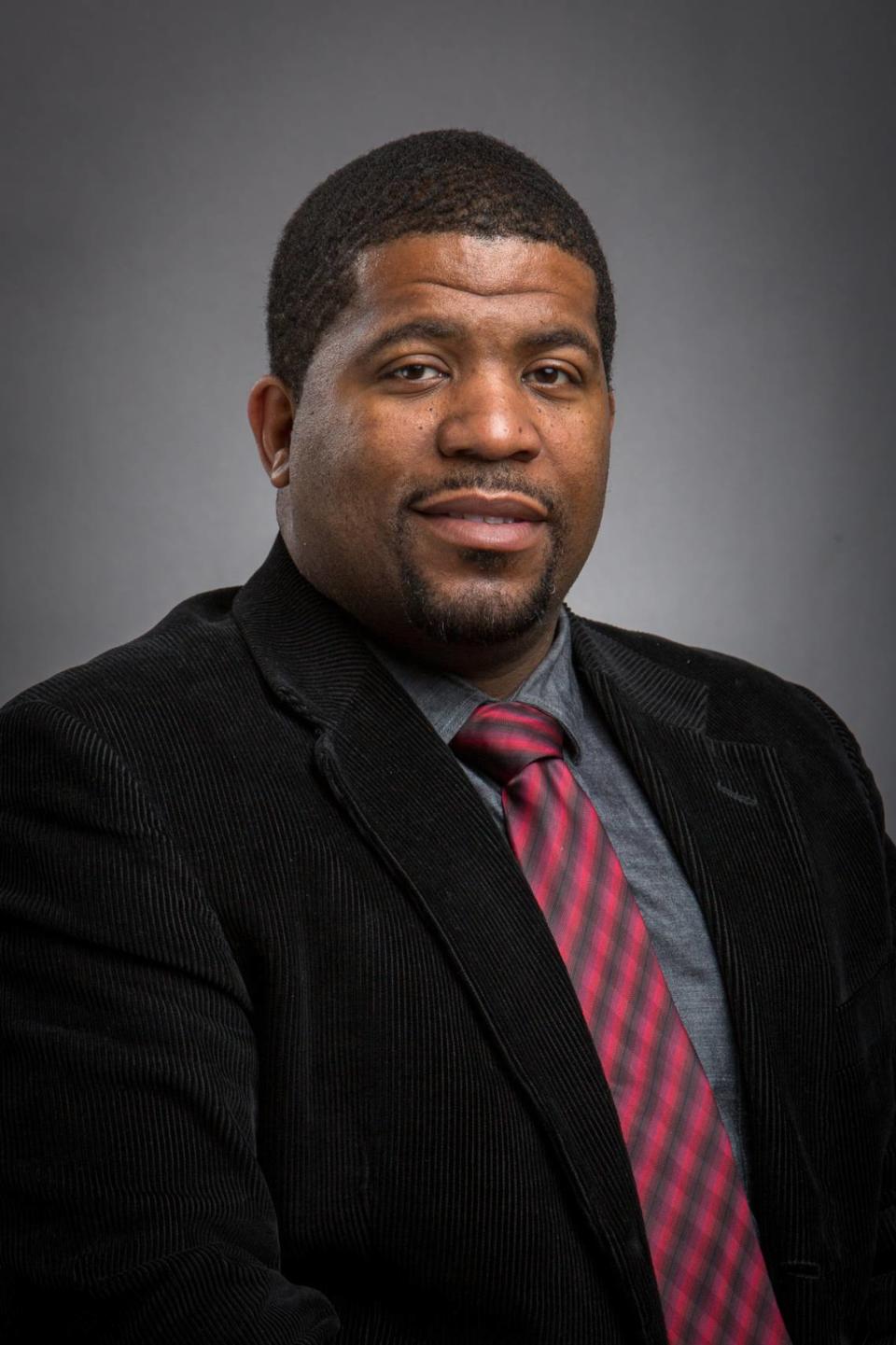Only 2% of US teachers are Black men. This NCCU program could help change that.
Growing up in Wake County, it wasn’t until high school that Chester Crowder had a Black male teacher.
Garner High is a Title 1 school, meaning it has enough low-income students to qualify for federal aid, and most of its student body is Black.
“That was my first time having an African American (teacher) that wasn’t a coach,” Crowder said.
Having that kind of role model earlier would have helped with his academic development, he said.
“I feel like everything would’ve been different,” he said. “Especially the way I learned in class and the way I enjoyed education would’ve been different.”

“That’s why I’m here,” said Crowder, a senior transfer student now majoring in elementary education at N.C. Central University. “That’s why.”
He’s talking about the School of Education’s new Marathon Teaching Institute., which is trying to increase minority male representation in education, especially among Black men.
N.C. Central is one of North Carolina’s 10 historically Black universities and one of five HBCUs funded by the state.
According to a recent U.S. Department of Education report, African-American men make up only about 2% of the nation’s public school educators.
As one of four members in the inaugural cohort, Crowder received a $25,000 scholarship. Along with mentorship and training opportunities, he is also guaranteed a job in the Durham Public Schools system as soon as he graduates.
Since August, he’s volunteered weekly at Lakewood Elementary School in Durham, just a few miles down the road from NCCU’s campus. It’s where he’ll spend his last semester as a student teacher and, eventually, work full time.
When asked what the opportunity means to him, Crowder literally exhaled.
“Just like that,” he said with a laugh. “It’s crazy. I never expected it. Playing football in college (at Chowan University), I never got that much [money]. So, it was definitely life-changing.”
‘For our culture’
The Marathon Teaching Institute has been two years in the making, said Quintin Murphy, chief recruiting and retention officer for the NCCU School of Education. It launched last August.

Murphy said while the university is well known in North Carolina for its nursing and law schools, he hopes the institute will bring his school the same kind of recognition.
“We want to make sure that we have that same strength towards preparing our teachers for their futures right here on this campus,” he said.
And it’s not just about the future teachers, but the students they will be serving.
At NCCU’s Men’s Achievement Center, Roderick Health is the director of the African American Male Initiative. Drawing from his past life working in K-12 schools, Heath says making education more viable for underserved communities is a priority.
“As I started digging into my research on non-cognitive behaviors (attitudes and skills not measured on tests), I looked at how important it was to have a male figure, or even a teacher, throughout your K to 12 journey,” Heath said. “A lot of these young men didn’t have one other than in sports.”

Minority graduation, suspension rates
That resonates with Crowder who, before high school, never had a teacher who looked like him. Even Heath says the only Black male figure he had between elementary and high school was his high school football coach.
A North Carolina public schools report for 2020 shows that 85.2% of Black students graduated in four years or less from high school compared to 90.8% of white students. Even fewer Latino students graduated in four years or less: 81.7%.
Short and long-term suspensions and expulsions were also highest among Black and Native American students in 2020. The same goes for chronic absenteeism.
“Look at Black males dropping out of school, the graduation rates. If we have some strong men in the building to curb some of these behaviors and even to give them a conversation,” Health said. “It’s all about being relatable.”
Durham is already a hub for Black male teachers, principals, and superintendents, says Heath. The plan is to next create an NCCU-to-classroom pipeline.
“We’re going to knock on doors, we’re going to go in homes, we’re going to go just like a coach would to recruit players, but we’re gonna recruit minority males to come to North Carolina Central and teach,” he said.
Heath says the School of Education will provide the academics while he and Murphy will provide students with mentorships with other principals, both locally and nationwide. They will rely heavily on the school’s alumni network of “eager and prepared” educators across the U.S.

Crowder was formally inducted into the MIT inaugural cohort on Aug. 22. To be considered, students must be a minority male student majoring in education or counseling and be willing to participate in community service projects. Students also must have a cumulative 2.7 GPA or higher and meet all NCCU Teacher Education Program requirements.
For the $25,000 scholarship, students must be male elementary education majors with a cumulative 3.0 GPA or higher. They must commit to volunteering at a local elementary school during their junior and senior year and to work in Durham Public Schools upon graduation. Miles Turmon, a senior elementary education major from Easley, S.C. was the second scholarship winner with Crowder.
The Durham Report
Calling Bull City readers! We've launched The Durham Report, a free weekly digest of some of the top stories for and about Durham published in The News & Observer and The Herald-Sun. Get your newsletter delivered straight to your inbox every Thursday at 11 a.m. featuring links to stories by our local journalists. Sign up for our newsletter here. For even more Durham-focused news and conversation, join our Facebook group "The Story of my Street."

